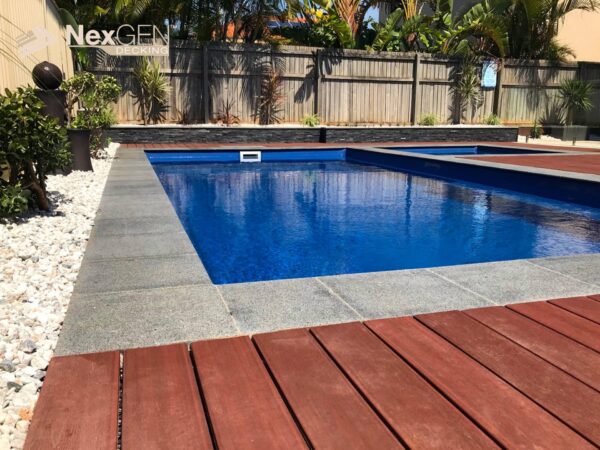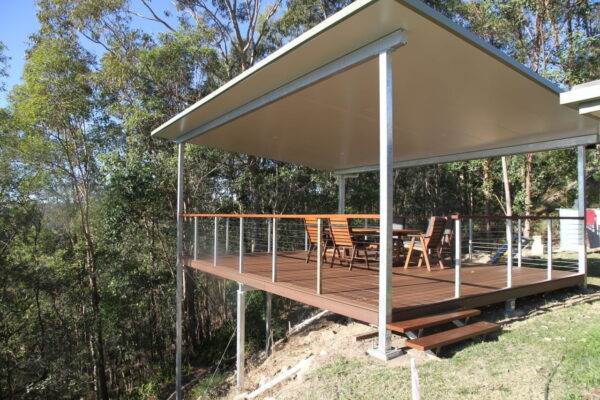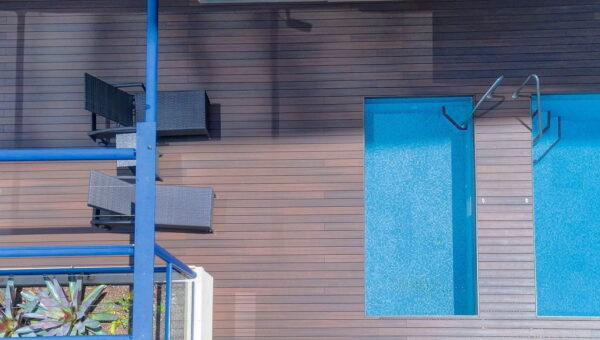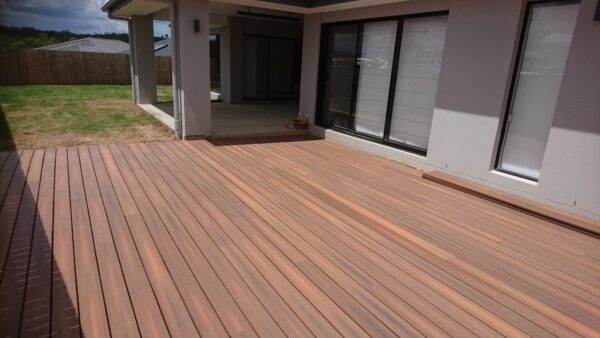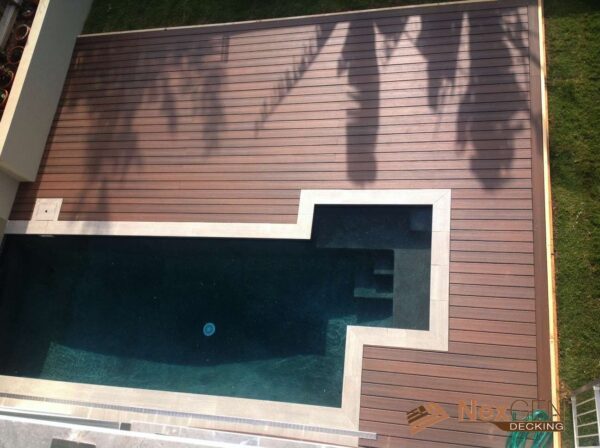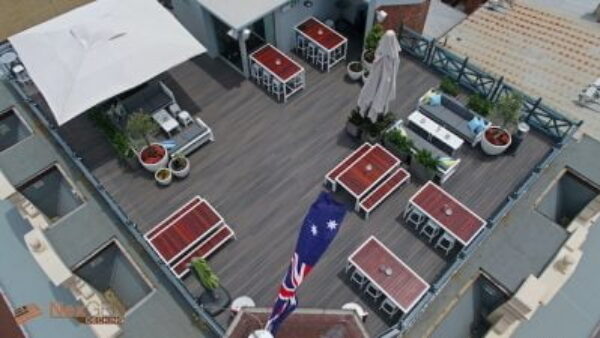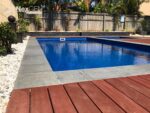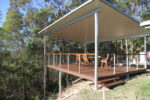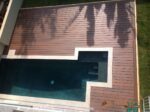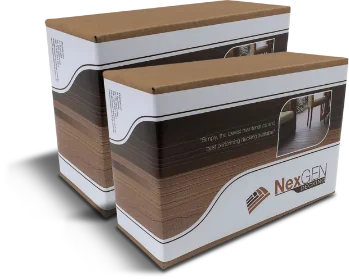There’s a lot to consider when building a deck
They come in all colours, shapes, and sizes, and the one you choose to install should not only reflect your personality, but should also be a safe and comfortable place to be in your outdoor space. Choosing a great decking material from the word ‘Go’ will help save you time, money, and effort in the long run.
There are several factors which come into play while planning a project, including total cost, overall design aesthetic, and safety. In the majority of cases, it makes the most sense to look for something that’s durable, stylish, and low-maintenance without breaking the bank. But with all that in mind, is Merbau the best choice for you?
Merbau is still a traditional favorite of both homeowners and builders when it comes to decking. In fact, if you’ve ever researched decking options, you’ve probably heard of this timber. While there are many strengths to Merbau decking, there are also some vulnerabilities and drawbacks that are well worth considering. Whether you’re thinking of building a new deck or renovating an old one, it’s always best to understand the advantages and disadvantages of all of your options. Let’s explore what Merbau is, where it comes from, and a little about what makes it so popular.
What is Merbau?
Merbau is a richly colored wood also known as Vesi, Ipil, Kwila, or Pacific Kwila. It’s grown in the South East Pacific Rim which encompasses areas such as the Philippines, Fiji, Malaysia, Vietnam, Madagascar, Papua New Guinea, Thailand, Solomon Islands, Indonesia, and Samoa. Merbau trees can grow up to 40 meters (131 ft.) tall with a trunk diameter of about 60 cm (24 in).
Advantages of Merbau Decking
There are many reasons why Merbau became such a popular timber for decking and other outdoor uses.
Merbau does not catch fire easily and is one of the few timbers to be rated for use in areas of the country which are prone to bushfires. As a result, it is well-suited to the Australian climate. In addition, the boards are quite stable and have a relatively low expansion/shrinkage rate, which is essential for outdoor materials, especially decking.
Merbau’s aesthetic qualities are also a draw to many, with its characteristic deep, reddish-brown coloration and interlocking grain pattern usually being a selling point. While it’s not as hard as many other native hardwoods, it is still an incredibly strong and durable material with a high level of workability.
General Disadvantages
While there are clear advantages to using Merbau, it’s also quite oily and is notorious for leaching sap and tannins until the wood dries completely. For this reason, it should never be used next to light wood, concrete, or light-colored tiling which can easily be stained. These resins can also adhere to the soles of shoes and be tracked throughout the house, resulting in a lot of frustrating clean up. While this can generally be mitigated with pressure washing or letting the tannins leach out naturally, which may take many months, it is a definite drawback to working with the wood.
There’s also the matter of standard yearly maintenance such as staining and refinishing, which is likely to be required of any timber deck. While its high durability makes it more resistant to cracking than some other timber choices, Merbau decking will still have to be refinished and repaired when needed.
Illegal Logging and Sustainability Concerns
In addition to the ongoing maintenance and the possibility of tannin stains, there have been concerns about the overall sustainability of using Merbau for commercial projects. Merbau is generally considered to be difficult to harvest without harming the surrounding natural habitat, and the tree’s long maturity period (75 to 80 years) make repopulating forests an uphill battle. It’s predicted that the tree could be extinct within 35 years if these sort of unsustainable practices continue.
Illegal logging is also a concern. There’s currently no real way to regulate either the quality of the wood or the conditions of the workers who operate within illegal channels. According to Greenpeace, a large amount of illegally harvested Merbau wood is being imported to China before either being sold within the country or exported from there. The increasing scarcity of Merbau is resulting in rising costs as well. Given that all of Australia’s stock is imported, it often carries a rather heavy price tag that many homeowners simply cannot afford.
Capped Composite Decking
While Merbau is a beautiful and durable wood, it comes with considerable downsides. Here are a few ways that the alternative, capped composite decking, addresses the concerns left by Merbau decking without sacrificing the look of your deck:
- Decking materials are toxin-free, local, and eco-friendly. Timber mill scraps, locally sourced recycled plastic, and other materials make up capped composite decking boards. These composites also work to prevent further deforestation.
- It requires much less maintenance than timber decking. Capped composite decking never requires any of the usual maintenance a wooden deck demands, such as sanding, oiling, staining, or painting. Soap and water are all you need to keep your deck looking amazing.
- The cost is much lower. While timber may cost less initially depending on the type of wood, the costs of continued maintenance and necessary repairs will add up quickly. Unlike wooden decks, capped composite boards aren’t susceptible to mold, mildew, insect infestation, or general decay. This also makes capped composite decking the safer choice as they do not splinter or warp.
- You won’t have to sacrifice aesthetics. Capped composite decking has grown by leaps and bounds over the years to reflect the natural beauty of hardwood’s various colours and wood grains.
Contact Us
NexGEN Decking offers high-quality, eco-friendly, maintenance-free decking and cladding products, as well as a variety of accessories to suit any project. We offer full installation services, solid warranties, and can also supply for DIY endeavors. We believe that you should be able to enjoy your free time at home and not have to spend it on upkeep. If you have a DIY project on your to-do list or would like to know more about your decking and outdoor living options, contact us at NexGEN Decking today!
Products
Gallery
Contact
Direct Office Numbers
Adelaide – (08) 6316 0469
Brisbane – (07) 3041 6065
Melbourne – (03) 8672 6444
Sydney – (02) 8072 6220

